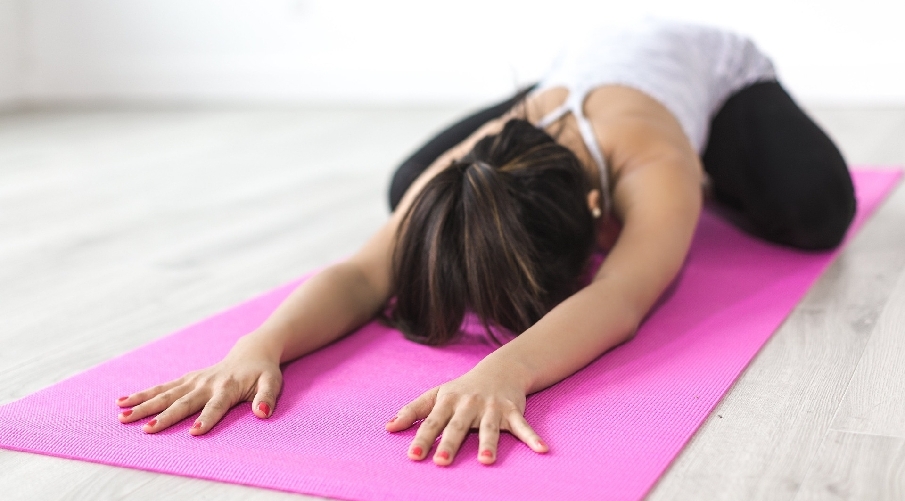Yoga is a holistic practice that affects the whole being.
It originated in India over 5,000 years ago.
There are many different types of yoga, but all involve physical postures (asanas) and breathing techniques (pranayama) designed to balance the body, mind, spirit, and heart.
This blog post will explore what yoga is and how it can benefit you.
Benefits of Yoga:
Physical Benefits of Yoga.
Yoga requires concentration and balance as you move through poses.
This helps to strengthen your muscles and improve flexibility.
Doing yoga regularly can help to improve your posture and reduce the risk of injury.
It can also help to increase your cardiovascular fitness levels by improving circulation throughout the body.
Mental Benefits of Yoga.
Yoga promotes mindfulness by requiring focus on the present moment.
Practicing yoga regularly can help to reduce stress levels and improve overall mental well being by increasing self awareness.
It can also help to boost confidence as you learn new skills, such as standing on one leg or doing a handstand!
Spiritual Benefits of Yoga.
On the spiritual level, yoga can help to foster a connection to one’s higher self, a deeper understanding of The Universe, and a sense of inner peace.
It can also help to cultivate self awareness, compassion, and acceptance of one’s true nature.
Practicing yoga can help to bring balance to the whole being and lead to spiritual enlightenment.
Emotional Benefits of Yoga.
It is known to provide numerous emotional benefits, such as improved stress and anxiety relief, increased positive outlook and improvements in mood.
Yoga can also help improve body image, promote relaxation, and provide a sense of calm and balance.
Furthermore, it can help promote a sense of connection with oneself and with others.
Regular practice of yoga can provide a sense of connection, as well as greater self acceptance and resilience.
With regular practice, individuals can learn to better manage their emotions, regulate their moods, and develop a greater sense of inner peace.
Yoga for Recovery:

For many, the idea of yoga may conjure up images of a calm and peaceful studio setting with tranquil music playing in the background.
But yoga can be much more than just that, it can also be an incredibly powerful tool for recovery.
From physical ailments to mental health issues, yoga can provide a safe, low impact way to support, manage, and even heal from all sorts of illnesses and injuries.
How Does Yoga Help With Recovery?
Yoga for recovery is an approach to healing that uses specific poses and postures from traditional yoga to help people recover from physical or mental illness or injury.
This type of practice aims to help individuals regain strength, flexibility, and balance while also reducing pain and stress levels.
Unlike other forms of exercise or therapy, which may focus solely on physical health benefits, yoga for recovery incorporates breathing techniques as well as meditation to promote psychological wellness and emotional healing.
Who Should Practice Yoga for Recovery?
Yoga can be beneficial to anyone looking to improve their mental or physical well being.
Still, it is particularly helpful for those dealing with chronic conditions such as anxiety or depression as well as those recovering from an accident or surgery.
It is also ideal for athletes looking to improve their performance by increasing their body awareness and overall strength and range of motion.
Finally, people with disabilities may find practicing yoga therapeutic due to its gentle nature which makes it easy to modify poses according to individual needs.
How Can I Get Started with Yoga for Recovery?
The best way to get started with yoga for recovery is by finding a certified instructor specializing in this type of practice.
Look online or ask your doctor if they have any recommendations on where you can take classes near you.
Make sure that any classes you attend are tailored specifically toward your needs so that you get the most out of each session.
Additionally, plenty of online resources are available if you prefer the convenience of practicing from home.
Whichever option you choose, ensure that you give yourself plenty of time before each class so that your body has enough time to warm up properly before beginning each pose or posture.
What you should remember?
Yoga has long been used as a form of exercise, but its potential goes far beyond just keeping fit.
As we have seen, yoga benefits the whole being, physically, mentally, spiritually, emotionally, in various different ways.
But it can actually be used as a tool in the healing process too!
Whether you’re dealing with chronic pain, recovering after an accident or surgery, or simply wanting some assistance managing stress, yoga could be the perfect solution.
To begin your journey into yoga recovery, make sure that you find an experienced instructor who specializes in this form of practice so that you get the most out of each session and start feeling better soon!






